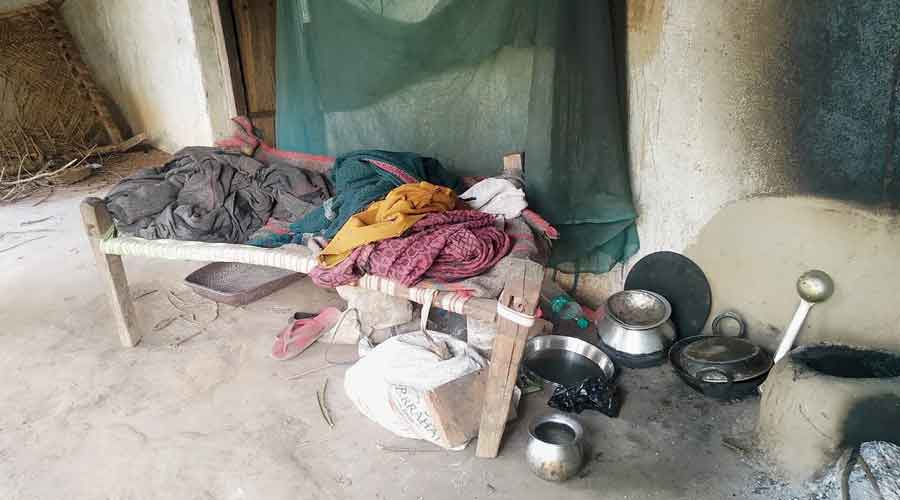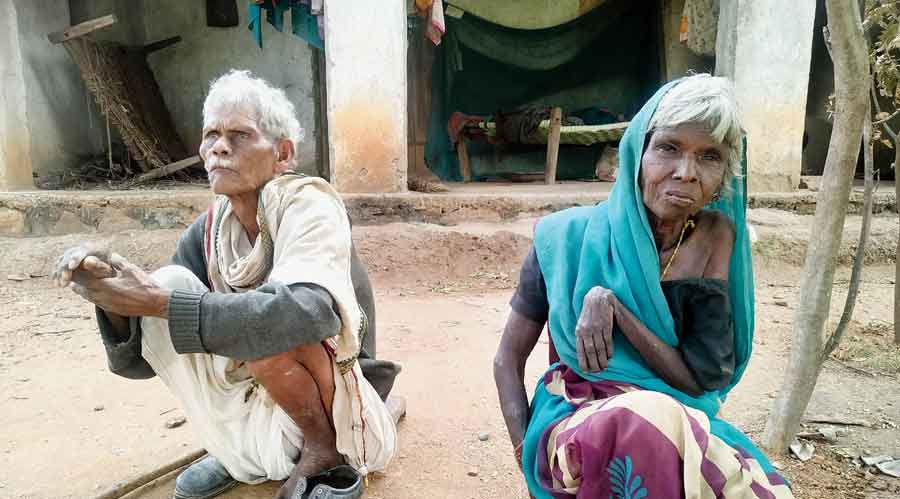An elderly and disabled couple belonging to the Parhiya tribe, one of the particularly vulnerable tribal groups, in Jharkhand’s Garhwa district is on the verge of starvation after being deprived of their ration and pension.
The incident exposes chinks in the government’s implementation of social security schemes in a state that had witnessed nearly 30 starvation deaths since 2017, according to a survey by the Right to Food Campaign activists.
Halkan Parhiya, 73, is blind while wife Jagiya, 69, is affected by polio in her left hand. They stay in a ramshackle house provided under the Indira Awas Yojana nearly two decades back at Mandohar-Karuwa village under Gamharia panchayat of Ramna block in Garhwa district, nearly 260km from state capital Ranchi.
“We have taken up the matter with Ramna block development officer (Lalit Prasad Singh) after coming to know about their pitiable condition. They do not have any children and have not been getting their ration since September. They are yet to receive either Adim Jan Jati Pension (Rs 600 per month) or state social security old age pension (a monthly amount of Rs 600 for disabled senior citizens) since several years. When we visited them, they did not have a single grain of food in their house,” said Manikchand Korwa, a Right To Food campaign activist based in Garhwa and a member of the Korwa PTG (primitive tribal groups).
The villagers claimed that the elderly couple had resorted to begging.
“They had no option but to beg for food in their village to survive. When we lodged a protest, the BDO arranged to supply food grains to the couple at around 11am on Monday,” Korwa said.
Parhiya is one of the eight PVTGs covered under state food and civil supplies department’s Dakiya scheme that entitles them to 35kg rice per month at their doorstep.

Some utensils at the house of Halkan Parhiya and Jagiya Parhia on Monday at Garhwa. Bhola Prasad
They are also entitled to receive 35kg of rice and wheat at a subsidised cost of Rs 3 per kg of rice and Rs 2 per kg of wheat.
Ramna BDO admitted that the couple did not receive food grains since September.
“We came to know about their condition and arranged to distribute the ration for September on Monday morning. We will try to distribute the pending ration to them soon. I visited the couple and it is unfortunate that they have not been covered under the state pension scheme due to some technical difficulties with their bank accounts. We have collected their documents and soon they would be receiving their pension as well,” Singh said.
The Indigenous Rights Advocacy Centre, a social organisation advocating the rights of indigenous people in India, had moved the National Human Rights Commission in October against reported starvation of 8,000 tribals due to the denial of ration in Garhwa district for the last three months and over media reports about tribals surviving by eating roots.










